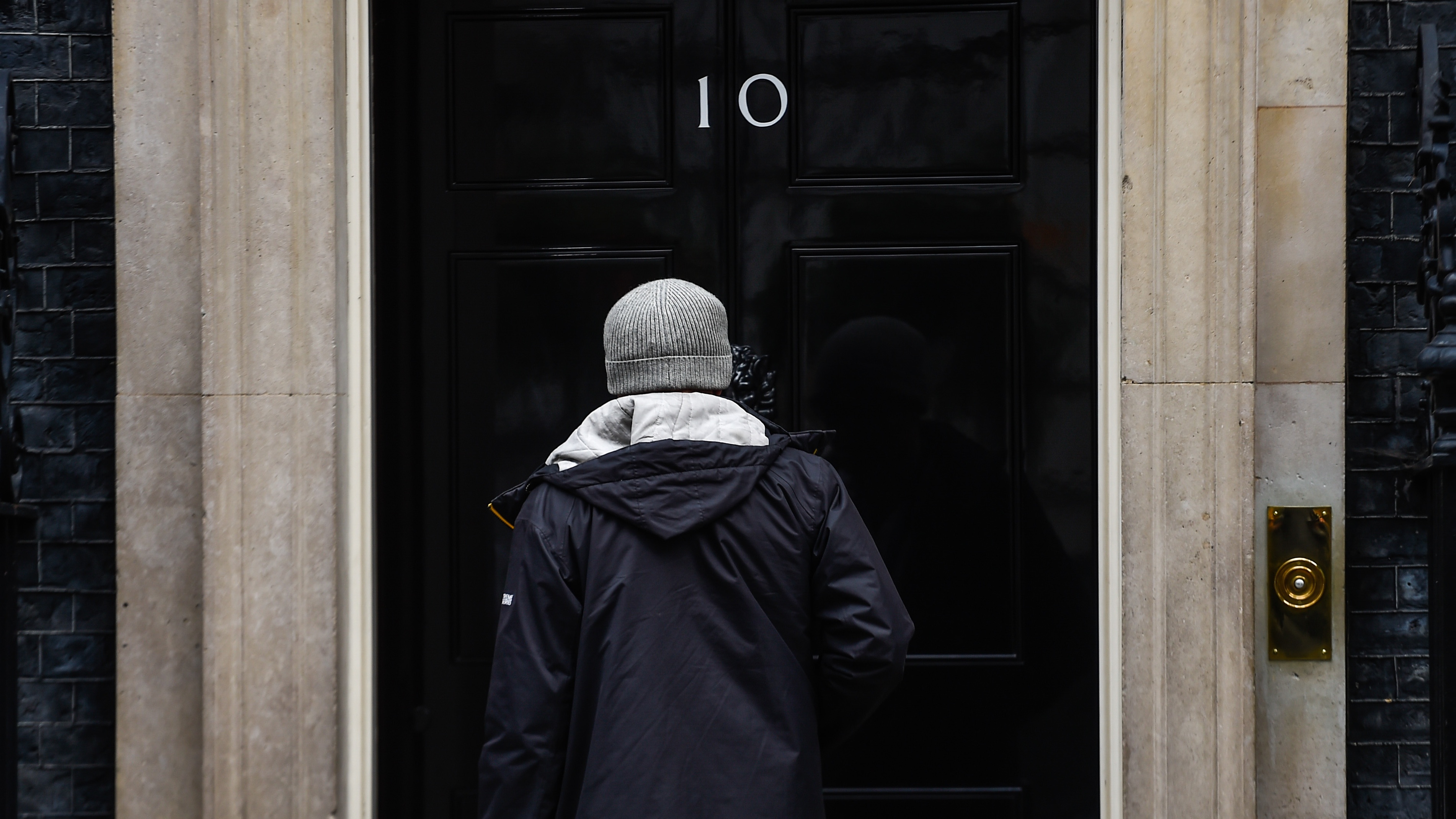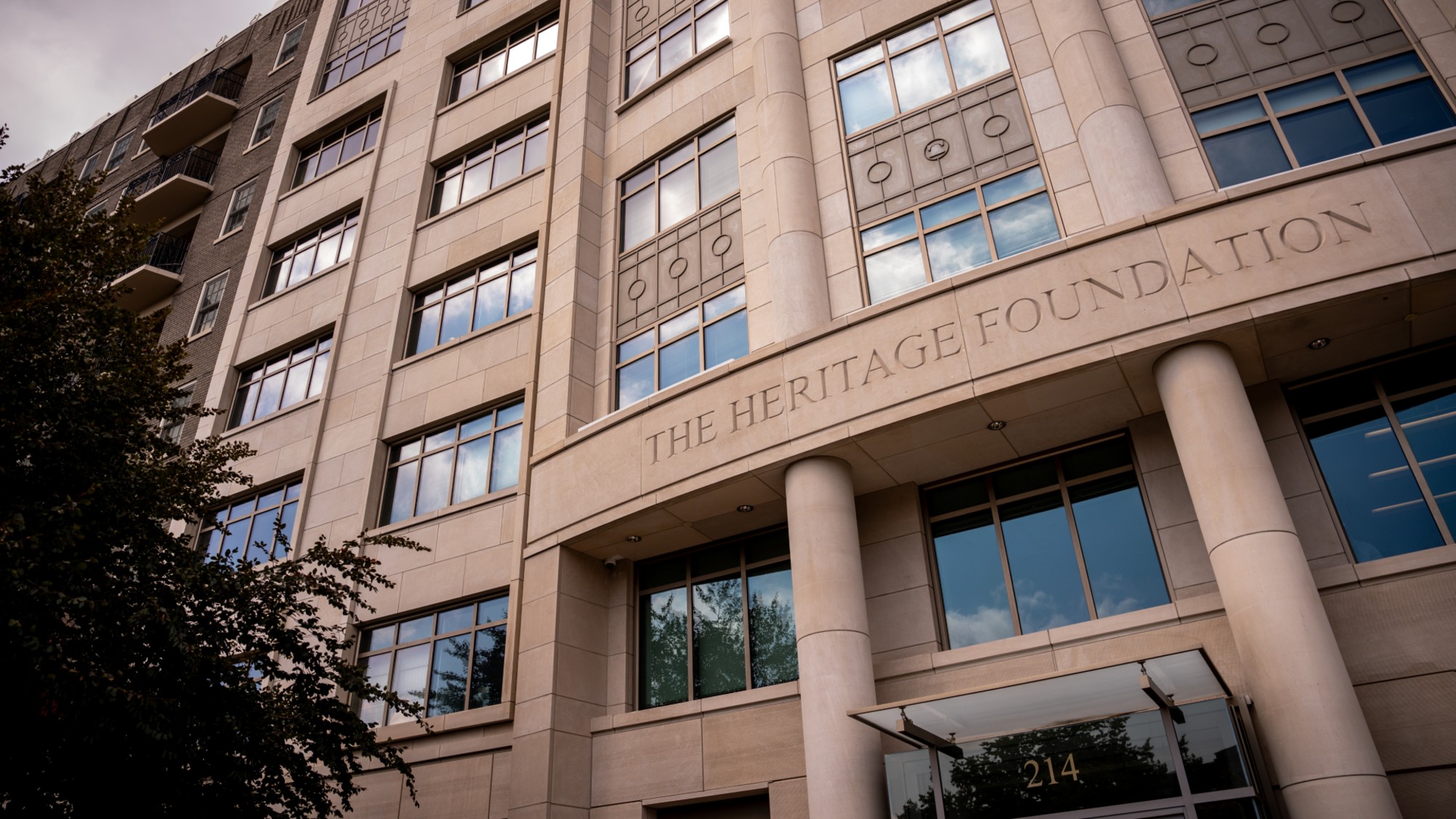Vote Leave’s AI firm handed government contracts worth £3m - but for what?
Artificial intelligence operation Faculty Private has also received payments from company owned by Dominic Cummings

A free daily email with the biggest news stories of the day – and the best features from TheWeek.com
You are now subscribed
Your newsletter sign-up was successful
An artificial intelligence firm that has been awarded government contracts worth millions after working on the Vote Leave campaign has also been handed almost £260,000 by a private company owned by Dominic Cummings, it has emerged.
The prime minister’s right-hand man and AI operation Faculty have both declined to explain the reason for the payments by Cummings’ consultancy operation Dynamic Maps, The Guardian reports.
But the payments, made over two years, “are likely to raise further questions about the relationship between Cummings and the data analytics firm he hired in 2016 to conduct data modelling around the EU referendum for Vote Leave”, says the newspaper.
The Week
Escape your echo chamber. Get the facts behind the news, plus analysis from multiple perspectives.

Sign up for The Week's Free Newsletters
From our morning news briefing to a weekly Good News Newsletter, get the best of The Week delivered directly to your inbox.
From our morning news briefing to a weekly Good News Newsletter, get the best of The Week delivered directly to your inbox.
What is the government paying for?
The Guardian reported in May that Cummings’s arrival in Downing Street had seen Faculty “rapidly expanding its reach into various corners of Whitehall” after being “tasked with finding ways to apply artificial intelligence across government”.
Last month, The Telegraph revealed that the company had been given a £400,000 contract to “tap data from places such as social media sites to help steer the government’s response to Covid-19”.
Official government documents show that Faculty was hired “to provide data scientists who could set up ‘alternative data sources (e.g. social media, utility providers and telecom bills, credit rating agencies, etc)’”, as well as working with the Home Office to develop “terrorist blocking systems”, the newspaper said.
A free daily email with the biggest news stories of the day – and the best features from TheWeek.com
The firm has now been handed a total of at least 13 contracts since early 2018, worth a total of about £3m, according to The Guardian.
Lawyers for Faculty this week told the paper that the firm “rejected any suggestion it received preferential treatment from the prime minister’s chief adviser”.
So is there any controversy?
Faculty’s ties to government have been under increased scrutiny following reports in May that Cabinet Office minister owns a £90,000 shareholding in the firm.
Theodore Agnew is responsible for “the government department that promotes the use of digital technology within public services”, raising questions about his involvement with the company, The Guardian reported. A government spokesperson said Agnew had no role in awarding any contracts to Faculty.
In a separate row, openDemocracy reported in June that documents obtained through a Freedom of Information request suggested the government “misled the public about how it is protecting the privacy of millions of NHS users in its major Covid-19 data deals”.
The investigative journalism site said the contracts relating to deals with tech firms including Faculty indicated that the companies “could profit from the intellectual property generated from the project (despite assurances to the contrary)” and that “NHS users could be re-identified from their health data”.
The claims came weeks after journalist David Hencke alleged that the firms won the contracts without them “being put out to competitive tender”.
The deals were “justified by NHS England as legitimate under an obscure statutory instrument laid before Parliament in February 2015 by the Coalition Government”, Hencke reported.
Faculty’s lawyers had previously told The Guardian that “its NHS contract was the result of a tender process that was not influenced by Cummings”.
Joe Evans is the world news editor at TheWeek.co.uk. He joined the team in 2019 and held roles including deputy news editor and acting news editor before moving into his current position in early 2021. He is a regular panellist on The Week Unwrapped podcast, discussing politics and foreign affairs.
Before joining The Week, he worked as a freelance journalist covering the UK and Ireland for German newspapers and magazines. A series of features on Brexit and the Irish border got him nominated for the Hostwriter Prize in 2019. Prior to settling down in London, he lived and worked in Cambodia, where he ran communications for a non-governmental organisation and worked as a journalist covering Southeast Asia. He has a master’s degree in journalism from City, University of London, and before that studied English Literature at the University of Manchester.
-
 The Olympic timekeepers keeping the Games on track
The Olympic timekeepers keeping the Games on trackUnder the Radar Swiss watchmaking giant Omega has been at the finish line of every Olympic Games for nearly 100 years
-
 Will increasing tensions with Iran boil over into war?
Will increasing tensions with Iran boil over into war?Today’s Big Question President Donald Trump has recently been threatening the country
-
 Corruption: The spy sheikh and the president
Corruption: The spy sheikh and the presidentFeature Trump is at the center of another scandal
-
 How corrupt is the UK?
How corrupt is the UK?The Explainer Decline in standards ‘risks becoming a defining feature of our political culture’ as Britain falls to lowest ever score on global index
-
 ‘Human trafficking isn’t something that happens “somewhere else”’
‘Human trafficking isn’t something that happens “somewhere else”’Instant Opinion Opinion, comment and editorials of the day
-
 The high street: Britain’s next political battleground?
The high street: Britain’s next political battleground?In the Spotlight Mass closure of shops and influx of organised crime are fuelling voter anger, and offer an opening for Reform UK
-
 Biggest political break-ups and make-ups of 2025
Biggest political break-ups and make-ups of 2025The Explainer From Trump and Musk to the UK and the EU, Christmas wouldn’t be Christmas without a round-up of the year’s relationship drama
-
 ‘Tension has been building inside Heritage for a long time’
‘Tension has been building inside Heritage for a long time’Instant Opinion Opinion, comment and editorials of the day
-
 ‘The point here is not to be anti-tech but to rebalance a dynamic’
‘The point here is not to be anti-tech but to rebalance a dynamic’Instant Opinion Opinion, comment and editorials of the day
-
 ‘City leaders must recognize its residents as part of its lifeblood’
‘City leaders must recognize its residents as part of its lifeblood’Instant Opinion Opinion, comment and editorials of the day
-
 ‘The menu’s other highlights smack of the surreal’
‘The menu’s other highlights smack of the surreal’Instant Opinion Opinion, comment and editorials of the day